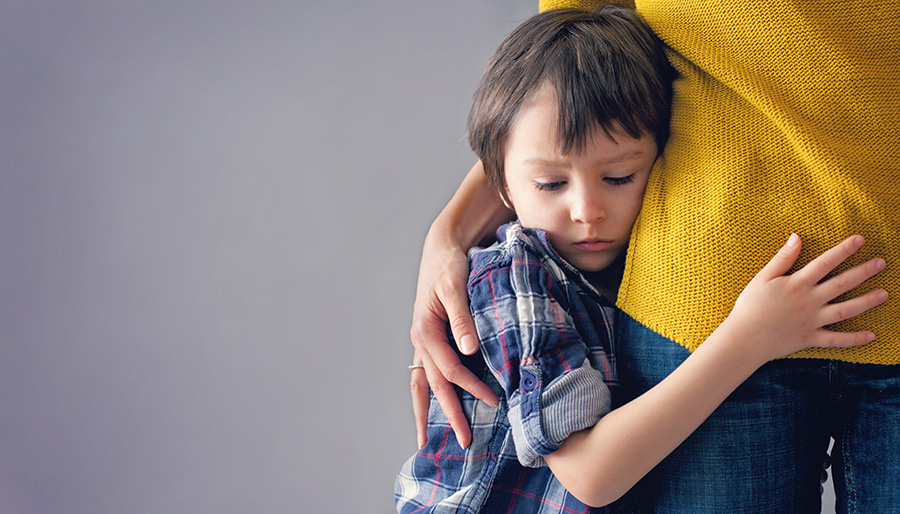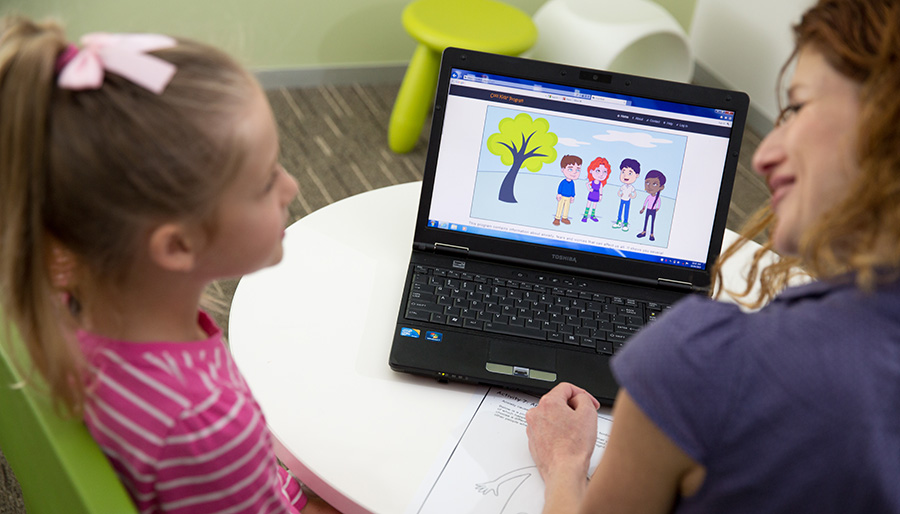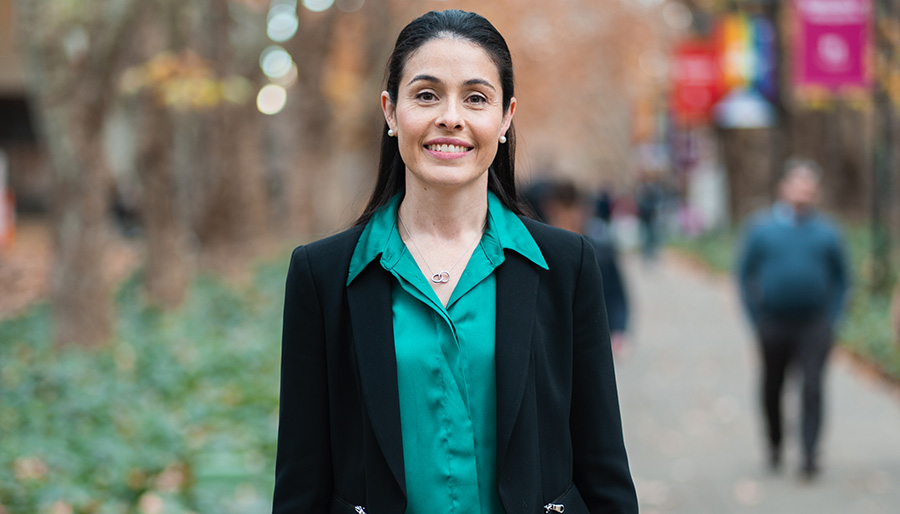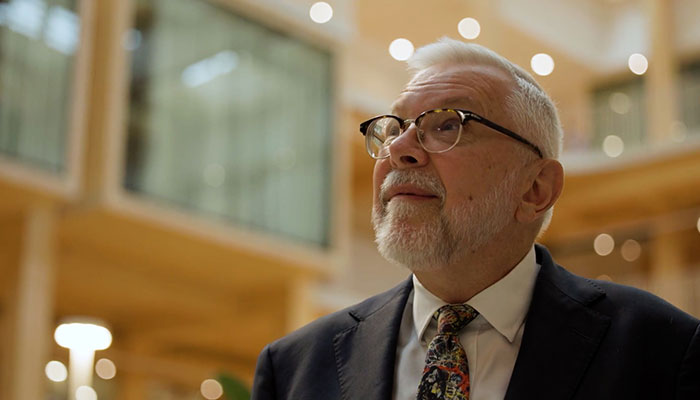Anxiety disorders are the most common mental health disorders in children worldwide, even affecting preschoolers as young as three.
Cognitive behavioural therapy (CBT) is the gold-standard treatment for anxiety for all ages, with more than 50 per cent of children treated in this way seeing significant improvement after 10 to 16 sessions.
But with a cost-of-living crisis, a shortage of therapists and ongoing stigma associated with mental health disorders, between 25 and 50 per cent of children with anxiety never receive help.
Other families do reach therapy, only to discover that the treatment is either not evidence-based or does not include enough sessions to be of use.
Clinical psychologists at Macquarie University developed the Cool Kids Anxiety Program in 1993 to provide an effective, evidence-based treatment option for families.
Through Cool Kids, the clinic works directly with Australian children and their families, but it also trains and accredits mental health practitioners around the world to deliver the treatment in their own communities.
Originally designed as 10 weeks of face-to-face sessions, Cool Kids has been shown to be highly effective through rigorous scientific evaluation, and it has been updated regularly to incorporate the most up-to-date understanding of anxiety and its treatment.
Key features include exposure therapy, where the child learns to fight their fears by facing them; ‘detective thinking’, where they learn to think differently about fear-inducing situations and see them in a more realistic light; and learning to develop and use coping strategies.
Cool Kids has now been adapted into an internet-delivered CBT (iCBT) program, with the child and their caregiver working together to complete eight lessons over 10 weeks. The caregiver receives up to 10 brief telephone calls from a therapist to support them working with their child.
“The online option can also be less disruptive for families as they can complete the lessons at times that suit them instead of having to attend appointments.”
To test the effectiveness of Cool Kids Online, 95 children aged between seven and 12 who had anxiety took part in a clinical trial funded by Australian Rotary Health. The results were recently published in the Journal of Anxiety Disorders.
The findings
Macquarie University clinical psychologist and trial leader, Dr Lauren McLellan, says a first-stage clinical trial must show that the treatment being tested is better than doing nothing.
To test this, the children were randomly divided into a treatment group and a control group. The treatment group began the program immediately, while the control group joined a waiting list and began the program at the 11-week mark.
Both groups were assessed on joining the program, immediately after completing it and six months after completion. The control group was also assessed after the waiting period to see whether they had improved without intervention.
A team effort: A caregiver's support during the the Cool Kids Online program is important as they learn skills alongside their child and help them complete weekly tasks.
Dr McLellan says the results showed Cool Kids Online was effective, with results similar to the program’s face-to-face version.
“After treatment, 64 per cent of children were free of their primary diagnosis of anxiety, compared with 28 per cent of the children on the wait list. This figure had improved to 75 per cent at the six-month mark,” she says.
“This is impressive, as it’s not only comparable to the success rate of face-to-face anxiety treatment programs, it’s also one of the first times an iCBT anxiety program for primary school-aged children has found diagnostic change compared to children who did not receive treatment.”
Remission does not mean that the child never feels anxious again, but that anxiety is no longer impacting significantly on their life or causing them significant distress. In everyday life, that translates to the ability to cope with their fears, resulting in improvement academically and socially, in family life and extracurricular activities.
Dr McLellan says the inclusion of exposure therapy is a key part of both versions of Cool Kids, as this isn’t always offered to children in other therapy programs.
“The caregiver’s involvement is also extremely important,” she says. “They are learning the skills alongside the child and coaching them as they complete the weekly lessons and activities.
“We know that when children are working with a parent or trusted caregiver, it’s a very effective way for them to learn.
“The online option can also be less disruptive for families as they can complete the lessons at times that suit them instead of having to attend appointments.”
A more cost-effective option
Studies have shown that CBT usually requires an average of 11 sessions to be effective, but at up to $250 an hour for face-to-face treatment, this option is out of reach for many families.
Dr McLellan says Cool Kids Online can currently be delivered for $750 – less than a third of the cost of face-to-face therapy – including the initial assessment.
“Caregivers had 10 15-minute therapist support calls available to them as part of the program, but on average they only used eight of those, so we will now look at whether we can reduce that telephone support, with a view to further reducing costs to families,” she says.
“Australia has an ongoing shortage of therapists, but this program has the potential to stretch those scarce resources further and reduce waiting lists while still providing children and families with treatment that works.
“We want to ensure that every child in Australia who needs help for anxiety can receive treatment.”
Cool Kids Online is now conducting a larger-scale clinical trial to test different therapist support options. Results will be available soon.
In the meantime, it is available in both online and face-to-face formats at the Macquarie University Emotional Health Clinic (EHC) for three age groups: Cool Little Kids for children aged three to six, Cool Kids for those aged seven to 12 and Chilled Out for teens.
Dr Lauren McLellan (pictured above) is a clinical psychologist, Director of My Mind Check, and Co‑Deputy Director of the Macquarie University Lifespan Health and Wellbeing Research Centre (previously the Centre for Emotional Health).



